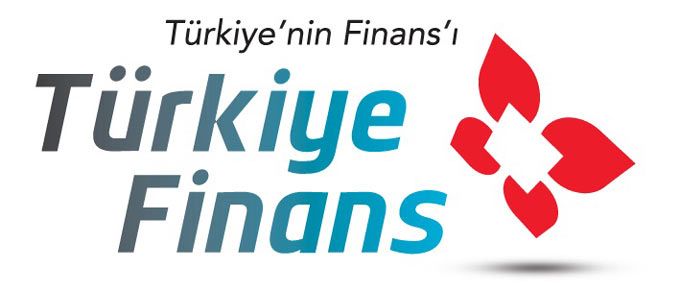A+ RANKING FOR ITS SUSTAINABILITY
Published by Gbaf News
Posted on August 30, 2014
3 min readLast updated: January 22, 2026

Published by Gbaf News
Posted on August 30, 2014
3 min readLast updated: January 22, 2026

TÜRKİYE FİNANS BECAME THE FİRST BANK AMONG DEPOSİT AND PARTİCİPATİON BANKS, ACHİEVİNG AN A+ RANKİNG FOR İTS SUSTAİNABİLİTY REPORT
The Global Reporting Initiative (GRI) has awarded an A+ rating to Türkiye Finans, Turkey’s leading participation bank, for its first sustainability report. The report is the first and only report by a bank in Turkey which is authorized to collect deposits to be awarded an A+ rating by GRI.

GRI leads the efforts to expand the use of the world’s most widely applied sustainability report framework. Approval for the A+ rating of the Türkiye Finans 2013 Sustainability Report was given in the Netherlands, home to the GRI secretariat. The rating represents the first ever A+ rating for the Turkish banking industry. Special emphasis was given in the report to the Kırkpınar Oil-Wrestling Festival, which forms part of the bank’s corporate social responsibility (CSR) project. By supporting the historic Kırkpınar Oil-Wrestling Festival, Türkiye Finans took on an important task in regards to the social and cultural aspects of sustainability. The report also featured miniatures — a classic Turkish art form — depicting both the city of Edirne and Kırkpınar oil-wrestling. Five miniatures created for Türkiye Finans by the artist Ferhat Akıl were showcased in the report.
 The CSR vision announced by Türkiye Finans in its sustainability report involves guiding the bank’s competitors and stakeholders to achieve sustainable economic growth and social development through CSR activities. The CSR strategy of Türkiye Finans consists of supporting economic growth and social development in parallel with society’s expectations. It also entails offering high-quality and diverse products and services in accordance with this strategy, and contributing to Turkey’s sustainable growth through non-profit social investments.
The CSR vision announced by Türkiye Finans in its sustainability report involves guiding the bank’s competitors and stakeholders to achieve sustainable economic growth and social development through CSR activities. The CSR strategy of Türkiye Finans consists of supporting economic growth and social development in parallel with society’s expectations. It also entails offering high-quality and diverse products and services in accordance with this strategy, and contributing to Turkey’s sustainable growth through non-profit social investments.
 Derya Gürerk, CEO of Türkiye Finans, identified sustainable growth as a key goal for the coming years and defined the bank’s sustainability strategy as having two principle axes: “The sustainability strategy is focused on achieving successful results in both society and the bank’s main areas of activity. We strive to strengthen further our contribution to society by carrying out exemplary corporate citizenship activities, while at the same time implementing excellent banking practices. Our strategy fully complies with the spirit of participation banking, and it aspires to combine excellent banking practices with exemplary corporate citizenship activities.” Gürerk affirmed the bank’s objective in 2014 as continuing to maintain their sound management structure in complete conformance with legislation, and in particular to fully meet the requirements of risk management. “We are determined to manage and develop our assets in the best way possible by capitalizing on our strengths, and to share the value we create with stakeholders from all walks of society,” he said.
Derya Gürerk, CEO of Türkiye Finans, identified sustainable growth as a key goal for the coming years and defined the bank’s sustainability strategy as having two principle axes: “The sustainability strategy is focused on achieving successful results in both society and the bank’s main areas of activity. We strive to strengthen further our contribution to society by carrying out exemplary corporate citizenship activities, while at the same time implementing excellent banking practices. Our strategy fully complies with the spirit of participation banking, and it aspires to combine excellent banking practices with exemplary corporate citizenship activities.” Gürerk affirmed the bank’s objective in 2014 as continuing to maintain their sound management structure in complete conformance with legislation, and in particular to fully meet the requirements of risk management. “We are determined to manage and develop our assets in the best way possible by capitalizing on our strengths, and to share the value we create with stakeholders from all walks of society,” he said.
 GRI has developed a sustainability reporting framework which is widely used throughout the world. GRI holds responsibility for establishing the principles and indicators for its reporting framework, including the reporting principles that institutions are required to use to both measure and report economic, environmental and social performances. GRI was founded in the US in 1997 by the non-profit organizations the Coalition for Environmentally Responsible Economies (CERES) and the Tellus Institute, and formed with support from the United Nations Environmental Programme (UNEP). In addition to boasting a global network of over 30,000 people, GRI has regional offices in Australia, Brazil, China, India and the US. In 2002, it moved to Amsterdam, where the current GRI secretariat is located.
GRI has developed a sustainability reporting framework which is widely used throughout the world. GRI holds responsibility for establishing the principles and indicators for its reporting framework, including the reporting principles that institutions are required to use to both measure and report economic, environmental and social performances. GRI was founded in the US in 1997 by the non-profit organizations the Coalition for Environmentally Responsible Economies (CERES) and the Tellus Institute, and formed with support from the United Nations Environmental Programme (UNEP). In addition to boasting a global network of over 30,000 people, GRI has regional offices in Australia, Brazil, China, India and the US. In 2002, it moved to Amsterdam, where the current GRI secretariat is located.
Explore more articles in the Banking category











